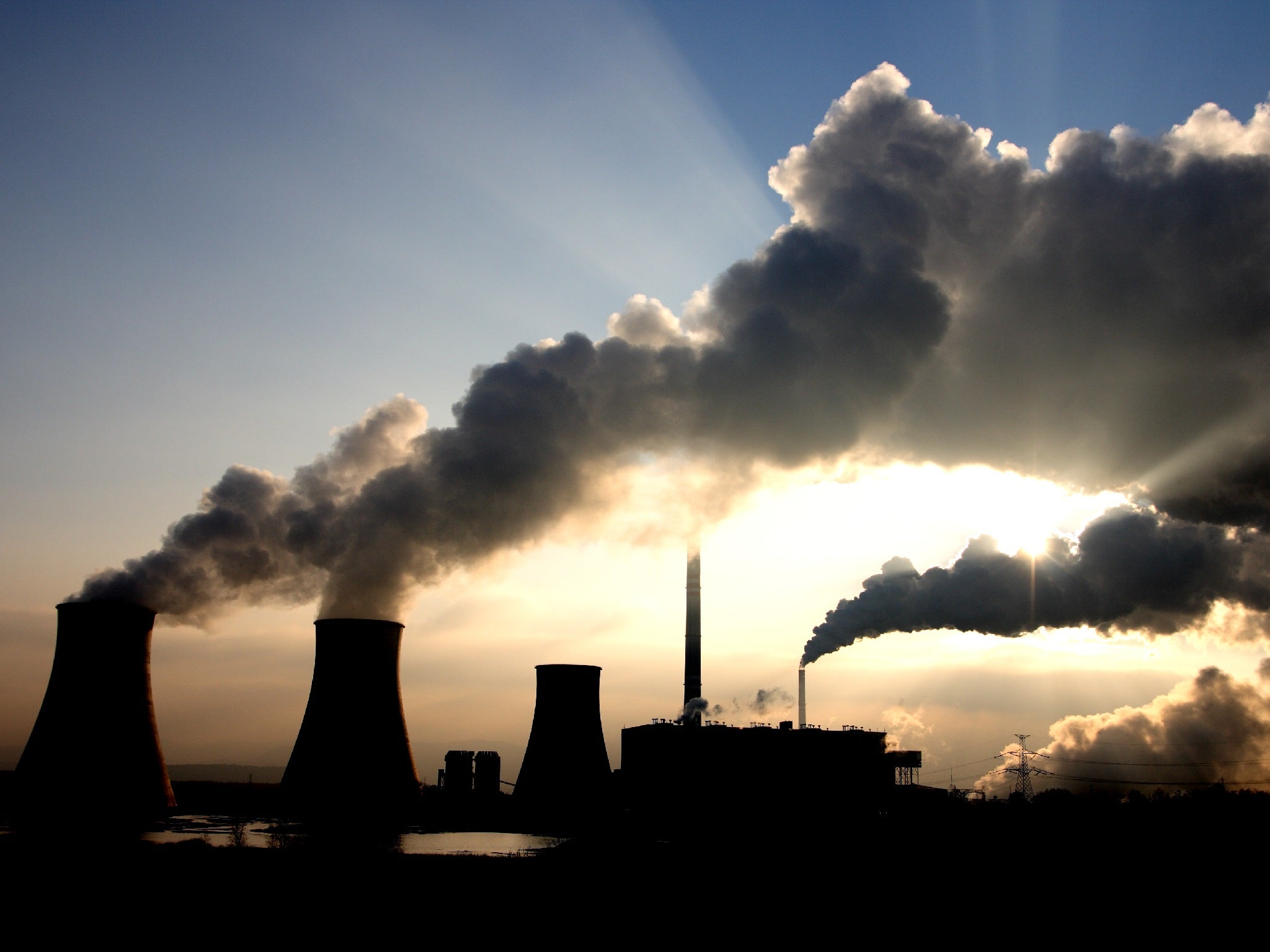Brexit could 'derail' EU attempts to fight climate change and reduce greenhouse gas emissions, say MEPs
Exclusive: European Carbon Trading Scheme (ETS) could lose £1.7bn worth of funding once Britain exits the trade bloc

Your support helps us to tell the story
From reproductive rights to climate change to Big Tech, The Independent is on the ground when the story is developing. Whether it's investigating the financials of Elon Musk's pro-Trump PAC or producing our latest documentary, 'The A Word', which shines a light on the American women fighting for reproductive rights, we know how important it is to parse out the facts from the messaging.
At such a critical moment in US history, we need reporters on the ground. Your donation allows us to keep sending journalists to speak to both sides of the story.
The Independent is trusted by Americans across the entire political spectrum. And unlike many other quality news outlets, we choose not to lock Americans out of our reporting and analysis with paywalls. We believe quality journalism should be available to everyone, paid for by those who can afford it.
Your support makes all the difference.Brexit could “derail” the European Union’s attempts to combat climate change and reduce greenhouse gas emissions, according to British MEPs.
Britain’s decision to leave the trading bloc could have a detrimental impact on the European Carbon Trading Scheme (ETS), which is the flagship policy aimed at cutting carbon emissions across the continent.
The United Kingdom is committed to providing almost €2bn (£1.7bn) worth of funding for the scheme, without which it is not yet clear how the system will survive.
Through ETS a cap is placed on total emissions and allowances are provided to member states.
Companies which fall under the remit of the scheme have to hand in an allowance for every tonne of carbon they release. They are allowed to buy and sell these allowances, which are priced to incentivise a reduction in emissions.
Ian Duncan MEP, who is the Conservatives' European spokesman on energy and climate change and also the lead lawmaker on reforming the ETS, said there was a “serious risk” Brexit could stop the functioning of the scheme, leading to “disastrous” consequences.
“In order for ETS to work a number of funds were created to help Eastern European nations to address the challenges of modernising their Soviet-era energy generators and manufacturing companies.
“The UK is one of the major contributors to this fund and after it leaves the finance for this fund will not be there,” Mr Duncan told The Independent.
“Without it, there is a serious risk not only that the ETS stops functioning post-Brexit, but that the EU loses support for its climate change targets altogether. With Donald Trump in the White House, the consequences of this could be disastrous for global efforts to tackle climate change.”
As it stands 10 per cent of allowances that are to be auctioned are transferred to lower-income member states. The UK’s contribution to this is approximately 100 million allowances.
Without the UK's input other EU member states would have to cover the costs or run the risk of lower income member states refusing to accept the climate change targets.
Seb Dance, a Labour MEP for the London region who sits on the European Parliament Committee for the Environment, Public Health and Food Safety, said ETS would have to be considered during the upcoming negotiations between Britain and the EU.
“I think it, [Brexit], certainly has the potential to derail ETS. There is a huge question mark over what the UK’s future contributions will be,” Mr Dance told The Independent.
“Obviously as these things are determined at a European level as well as a national level there are huge question marks.
“Where things are solely European competence, mainly ETS, that question is only that much bigger. There is currently a framework that the UK contributes and its removal from that framework is obviously a point of discussion in the upcoming talks,” he added.
The Brexit negotiations could result in Britain staying within the ETS and the Drax Group, an electrical power generation company which has upgraded half of its power station in North Yorkshire to run on sustainable compressed wood pellets instead of coal, is hopeful Britain can remain part of the scheme.
A Drax spokesperson said: “Our Government has taken a leadership role on carbon pricing at a European level and, as participation in the EU ETS is not dependent on EU membership, we hope that this situation continues as negotiations around Brexit move forward.”
Join our commenting forum
Join thought-provoking conversations, follow other Independent readers and see their replies
Comments